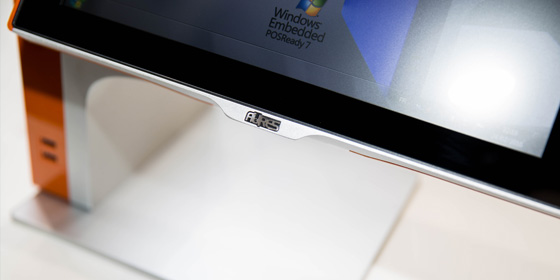Retailers Need to Keep Their Feet on the (Shop) Floor
By Caitlin GUILFOYLE – Account Manager AURES UK
Technology will once again be one of the key themes of this year’s RetailEXPO event in London as figures from across the retail, hospitality and leisure verticals come together to discuss and explore the latest ways to optimise operations and boost revenues.
Whenever anyone mentions technology and retail in the same breath, conversation tends to turn to the virtual worlds of ecommerce, mobile, online marketplaces and other digital channels. Digital retail has undoubtedly been the most transformative force to hit customer-facing industries over the past two decades and is often depicted as the future of shopping itself, the inevitable successor to old-fashioned bricks-and-mortar stores.
But any suggestion that ecommerce is about to consign in-store retail to the annals of history is directly contradicted by the evidence of how people still shop. According to one recent survey, an overwhelming 85% of UK shoppers said they still prefer to go into a store to buy. That doesn’t mean they never make in-the-moment purchases from their mobile phones for the sheer convenience of it. But it does tell us that any argument that consumers prefer to shop online simply doesn’t stand up to analysis.
The danger for retailers is, should they be swayed by such arguments, they start to focus all of their attention online, neglecting the channel that 85% of their customers may actually prefer to use. By focusing all of their energy and investment on technological and service innovations on digital channels, they miss potentially bigger opportunities to drive revenues by reimagining in-store shopping experiences.
Best of both
What is true is that digital commerce has thrown down a serious challenge to traditional bricks-and-mortar retail, and has perhaps shaken it out of a comfortable complacency. By providing a wealth of information at the consumer’s fingertips, focusing on inspiration and engagement,
and removing a lot of the friction out of buying (no more queues, for example!), ecommerce has set new standards for retail experiences which consumers expect wherever and however they shop.
The answer then is not for retailers to lose sight of the importance of in-store retail in favour of digital, but instead to incorporate the best of both worlds. Physical stores still have the advantage of immediacy – 78% of shoppers told the above survey that they like to see and feel a product directly before they buy, while 82% like the fact that they have the item as soon as they have paid for it. On the other hand, online wins out for product discovery and inspiration – a staggering 94% of shoppers say they research products online even when they go into a store to actually buy.
Technology is key to how retailers can create these optimised omnichannel shopping experiences that blend the best of in-store and digital. A lot of attention is inevitably given to the cutting-edge software platforms which can successfully integrate stores with ecommerce sites, mobile apps and social shopping channels, providing centralised control and a single data-led overview of all, as well as ensuring consistency of shopping experiences. But it is important not to forget the role of hardware in delivering the digitally-inspired shopping experiences modern consumers demand even when they are in store. Digital channels have this sewn up with smartphones and laptops. Stores need their own solutions.
This is where AURES comes in. We have seen POS equipment evolve from standalone cash registers through PC-based computerised tills to networked EPOS systems. Now we focus on creating touchscreen-based solutions which help retailers make their in-store services more flexible, seamless and interactive, in line with digital expectations.
From mobile POS tablets to self-service kiosks, our focus is on innovation which empowers customers and sales assistants alike. The option to literally take service to the customer with a mobile device, or give them the option of looking up information or process transactions themselves at fixed point terminals, does more than help keep queues down. It provides choice and flexibility in the in-store environment, two things consumers consistently rate highly in ecommerce.
It would be a mistake for any retailer to believe that consumer tastes have moved on from shopping in bricks-and-mortar stores. But thanks to the influence of digital commerce, consumer expectations around service and shopping experiences have shifted. It is important that retailers retain their focus on in-store technology to help meet them.
AURES will be at RetailEXPO at the Olympia, London 1st and 2nd May 2019.




